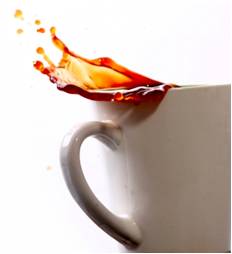 You’ve done all your research for the best marble countertop sealer and have carefully applied it to your kitchen or bath counters. The warranty for the sealer, based on the manufacturer, can be anywhere from 1 to 15 years.
You’ve done all your research for the best marble countertop sealer and have carefully applied it to your kitchen or bath counters. The warranty for the sealer, based on the manufacturer, can be anywhere from 1 to 15 years.
Marble counters usually get a lot of use and if they’re in your kitchen, you can be sure that your marble sealer will start to wear over time.
So how do you know when it’s time to reseal?
Just as there is a test to see if your marble is sealed when installed, there are also 2 other tests you can conduct — one to determine at what rate your marble is absorbing liquids and the other to determine your marble’s acid sensitivity.
The results of either of these two tests will allow you to determine first, if your marble sealer is living up its warranty obligations and second, if you need to reseal.
Test Marble Countertop Sealer Absorption
Here are the steps to take to determine whether your marble sealer or marble wax is starting to wear. While these are not hard and fast rules, they will certainly help in providing you advance notice that your countertop may need some love!
- Place a few drops of water in random locations on your countertop using your fingers, a plastic straw, an eye dropper or some other method
- Note if the water drops bead, slightly bead but spread or start to darken the countertop surface
- The list below is an absorption time assessment to indicate the current integrity of your sealer and whether you should consider resealing or test again at some point in the future
- 2 seconds or less – Water soaks in, time to reseal because your sealer is gone or has failed
- 3 seconds to 15 seconds – Water is slower to soak in, sealer has degraded and it’s best to reseal soon
- 16 seconds to 1 minute – Your absorption rate can be considered “low” but is an indication that the sealer should be monitored based on use
- 1 minute to 3 minutes – This is a very low absorption rate and you have time before needing to reseal
- 15 minutes or more – No evidence of absorption, water is still beaded, no resealing needed
As mentioned in other articles on this website, there is no sealer that will completely waterproof your marble. The sealer does buy you the time you may need to catch a spill and get it cleaned before it becomes an etch or a stain.
Test Marble Countertop Sensitivity to Acid
You probably will not need an acid test if you do the water test above but it’s included here just as an option for those who may find it useful.
This test will determine how sensitive your marble is to etching when exposed to food acids like lemon juice, tomato sauce, orange juice and pineapple.
Because this test involves the use of muriatic acid, it’s important to note that muriatic acid is corrosive and caustic and should be handled with care and caution.
- Place a drop of muriatic acid in an unnoticeable place on your marble surface
- If the drop fizzes or bubbles, your surface can be etched and your sealer isn’t working
- If the drop does not fizz, your sealer is working to prevent etching
- Place a drop of muriatic acid on an unsealed underside location of your marble countertop
- Again, if the muriatic acid fizzes, your marble, without sealer, is prone to etching making a good case for sealing and minimizing acidic food exposure




